Young Napoleon was bullied by his aristocratic peers.
He was aloof, spoke French with a funny accent, and of low nobility.
But he sought refuge in books — igniting a lifelong obsession. Reading became a “matter of power” for him.
Here’s how books guided his every move…🧵

Author Louis Sarkozy’s work “Napoleon's Library” paints a vivid picture of the emperor as an avid reader, enjoying history, philosophy, religion, and fiction.
His official portraits even reflect his love of reading — he’s often depicted in front of books and libraries.

According to Sarkozy, books were crucial to his early formation and later military acumen:
…they molded his adolescent mind and influenced his statesmanship. They made him the general he would become and accompanied him to his grave.”
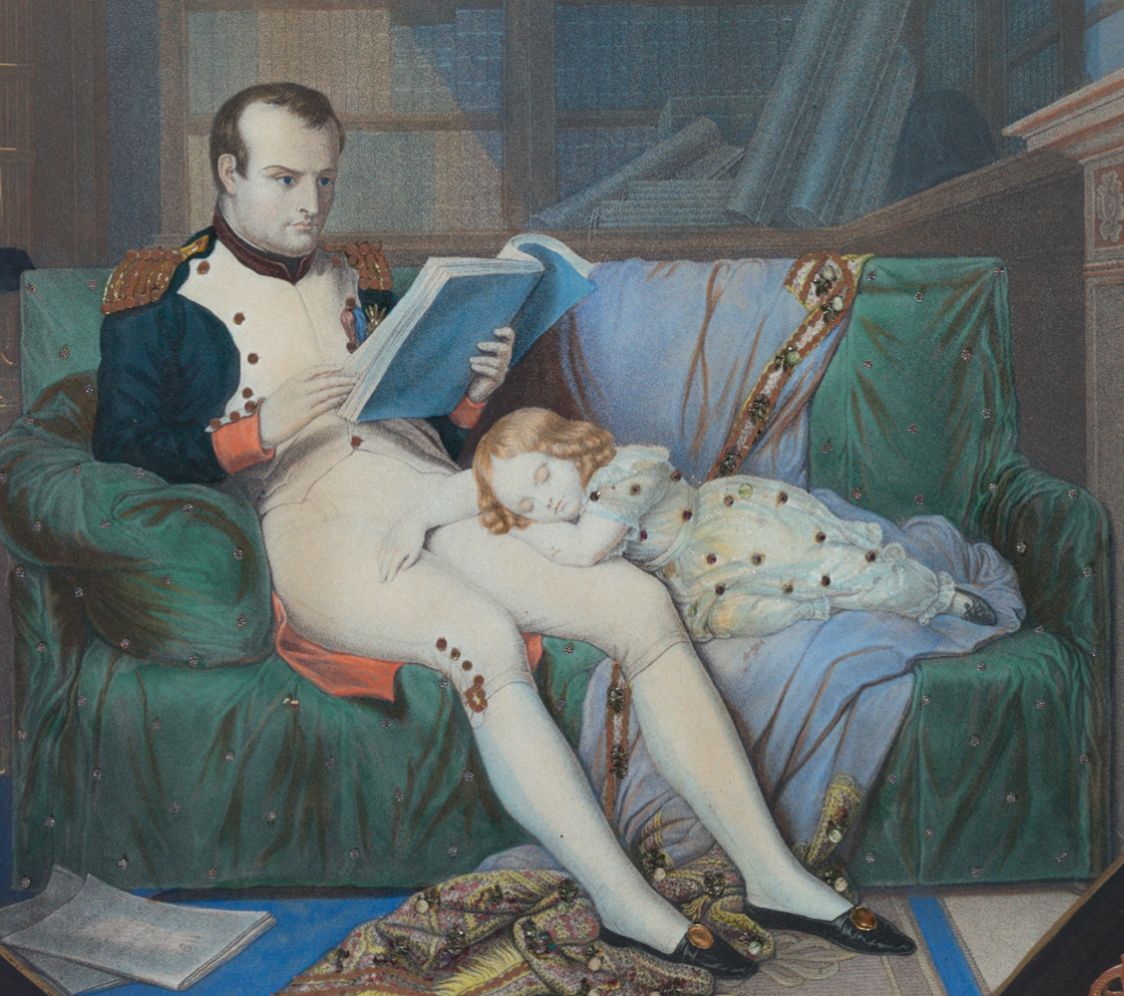
Though Napoleon had a wide range of interests, it was history — especially accounts of great conquerors before him — that he believed would give him an edge in life and on the battlefield.
His fascination with the great men of the past began in childhood…
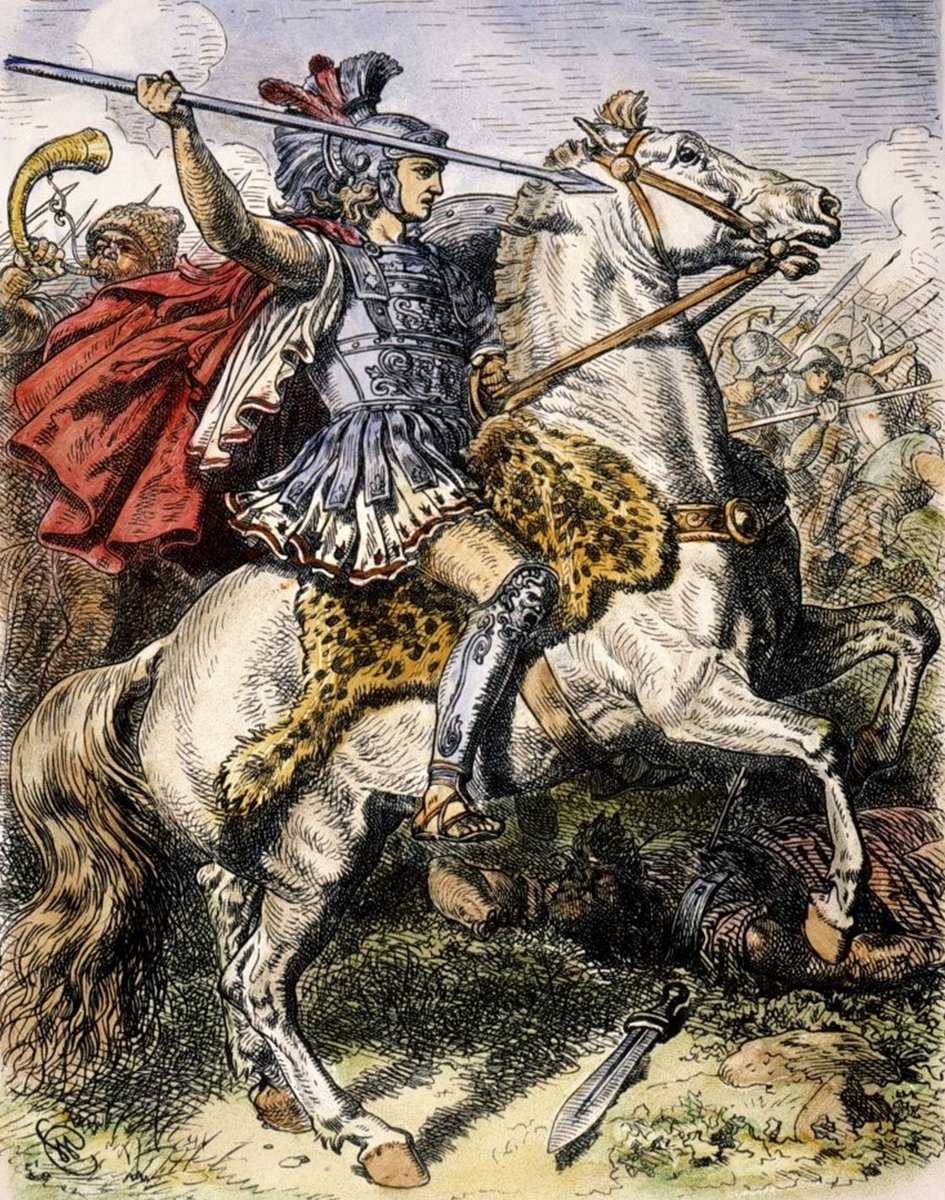
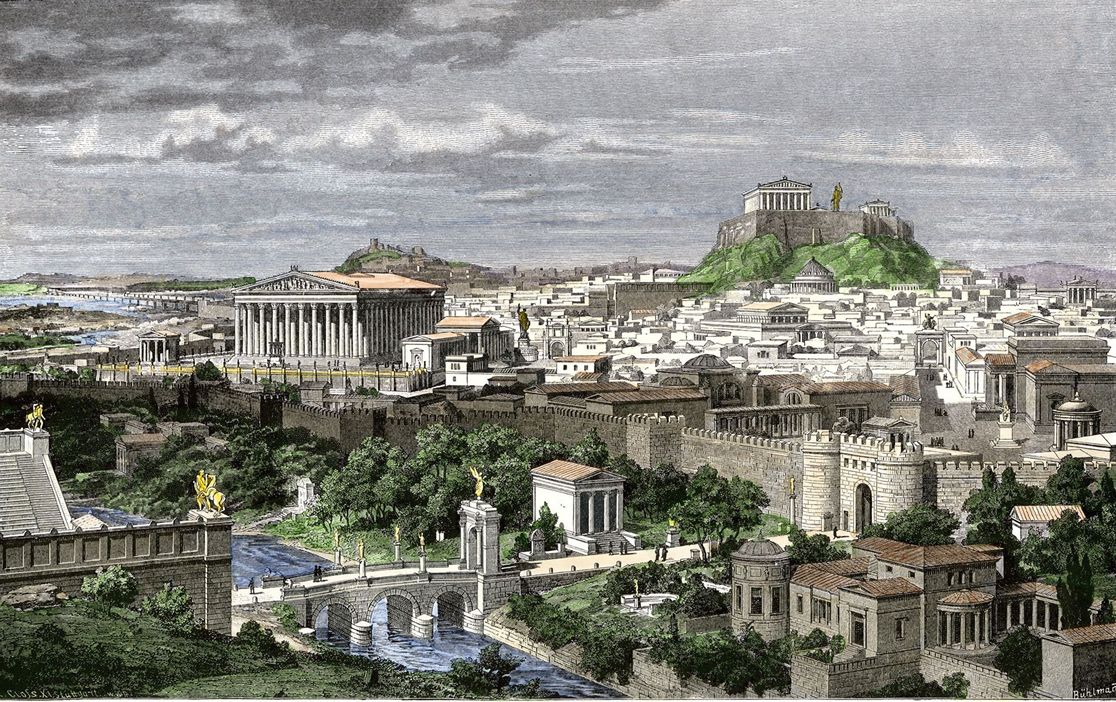
Born on the island of Corsica in 1769, Napoleon inherited an interest in reading from his father Carlo, a learned man of minor nobility who rose to become Corsica's representative to the court of Louis XVI.
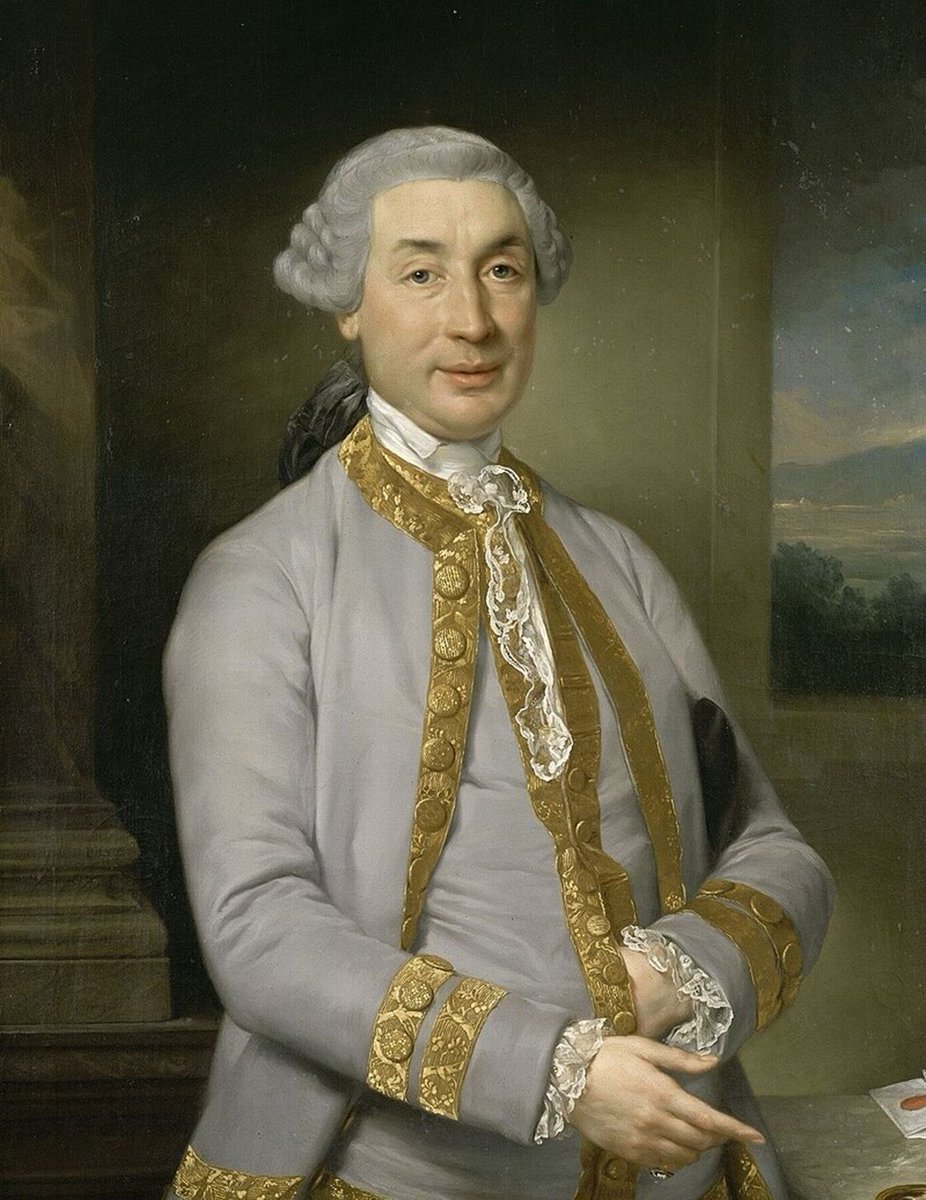
Upon their emigration to mainland France, the young Napoleon took to reading after he struggled to fit in with other boys his age. He spoke French with an accent and was of low nobility, prompting bullying by his aristocratic peers.
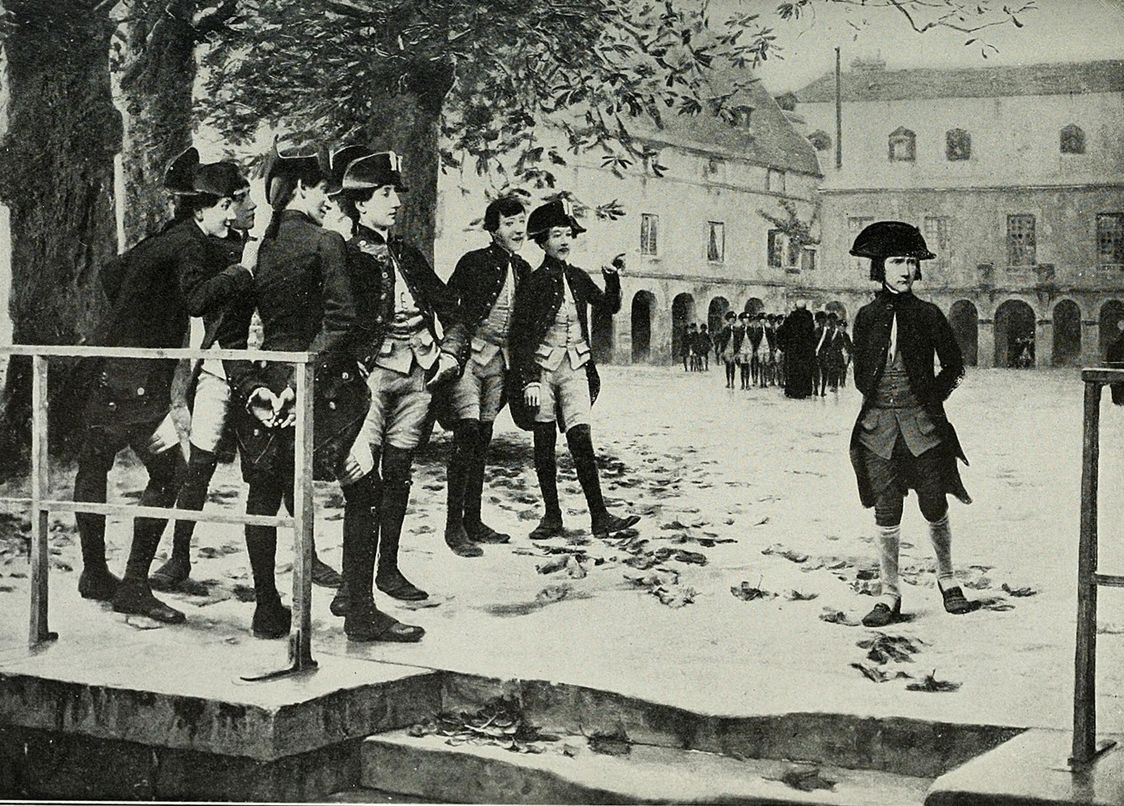
Books were a refuge:
“The great conqueror discovered reading first as a safe haven…At the tender age of 12 he had already dozens of authors, principally, those of antiquity, which left a lasting impact on his perception of the world.”
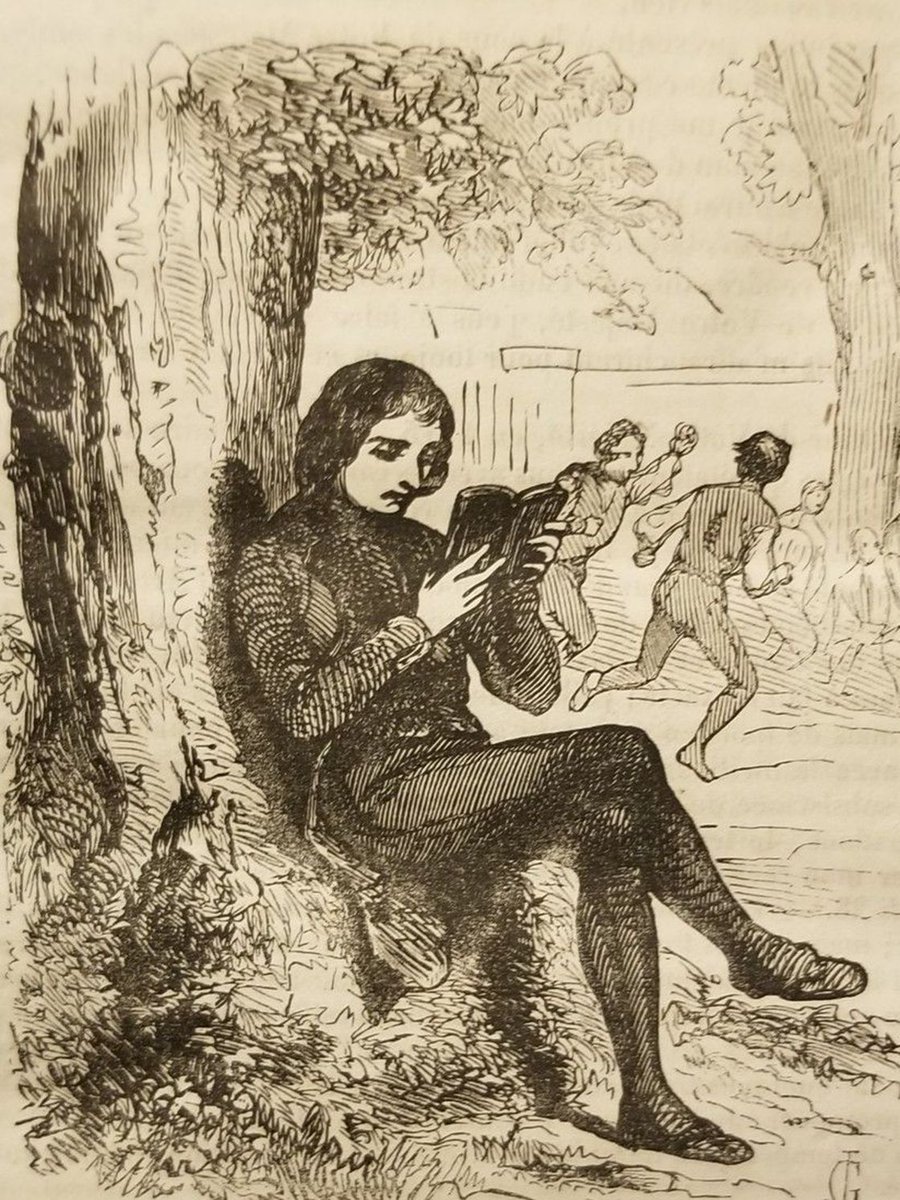
Few works had such an impact on the future emperor as Plutarch’s “Lives”.
A series of biographies of the greatest men of antiquity, it explores the vices/virtues of its subjects in an effort to reveal their personalities. Plutarch endeavored “not to write histories, but lives.”
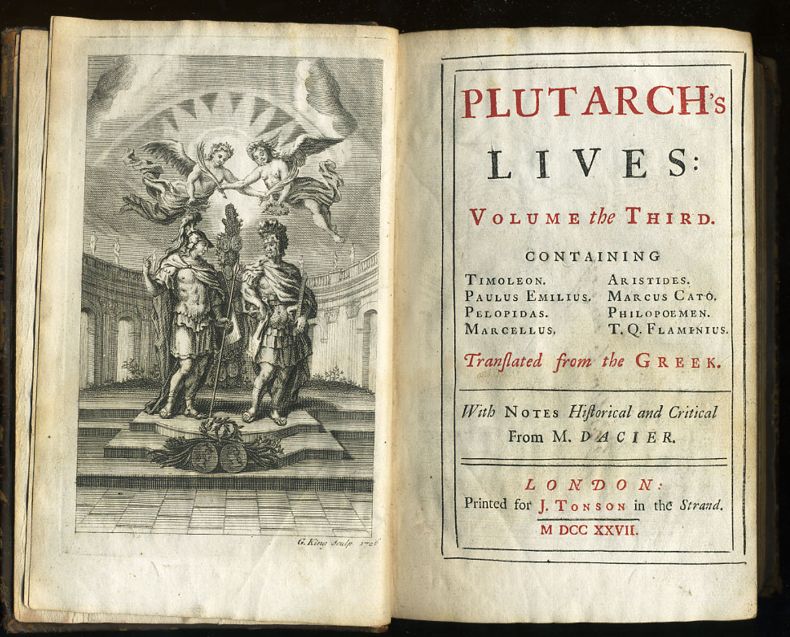
Napoleon especially took to the lives of Caesar and Alexander, figures who he continues to be compared with today. At the time, though, he dreamed of measuring up to them, fascinated by Alexander’s lightning conquest or how Caesar occasionally slept in his chariots.

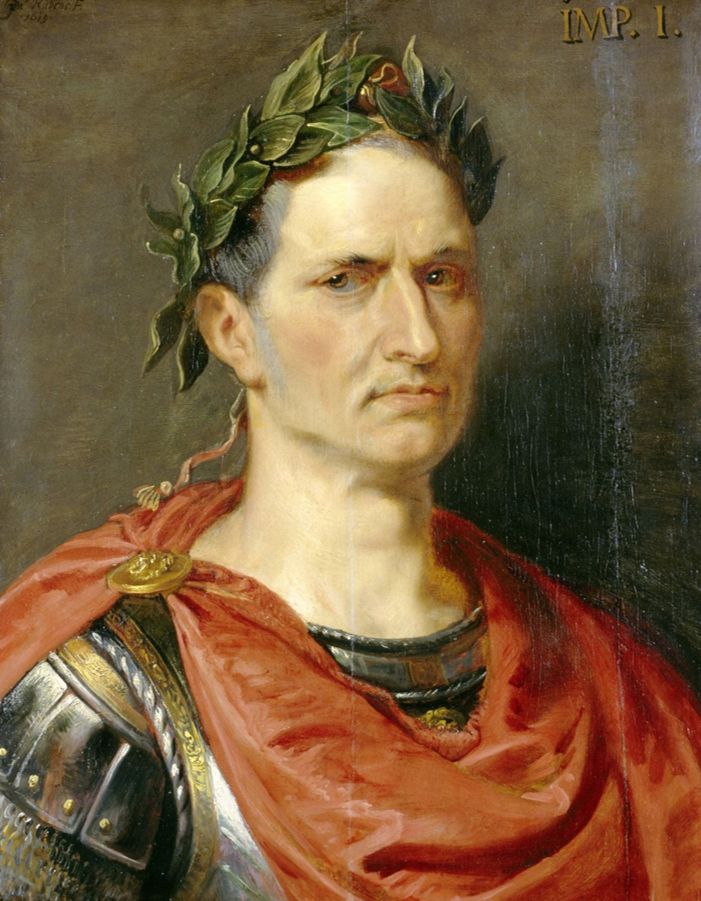
Sarkozy sums up what Napoleon learned from Plutarch:
“The world is for the taking. Ambition and determination are the means of achieving it. Imitate great men of history, and the world can be yours.”
And it almost was…
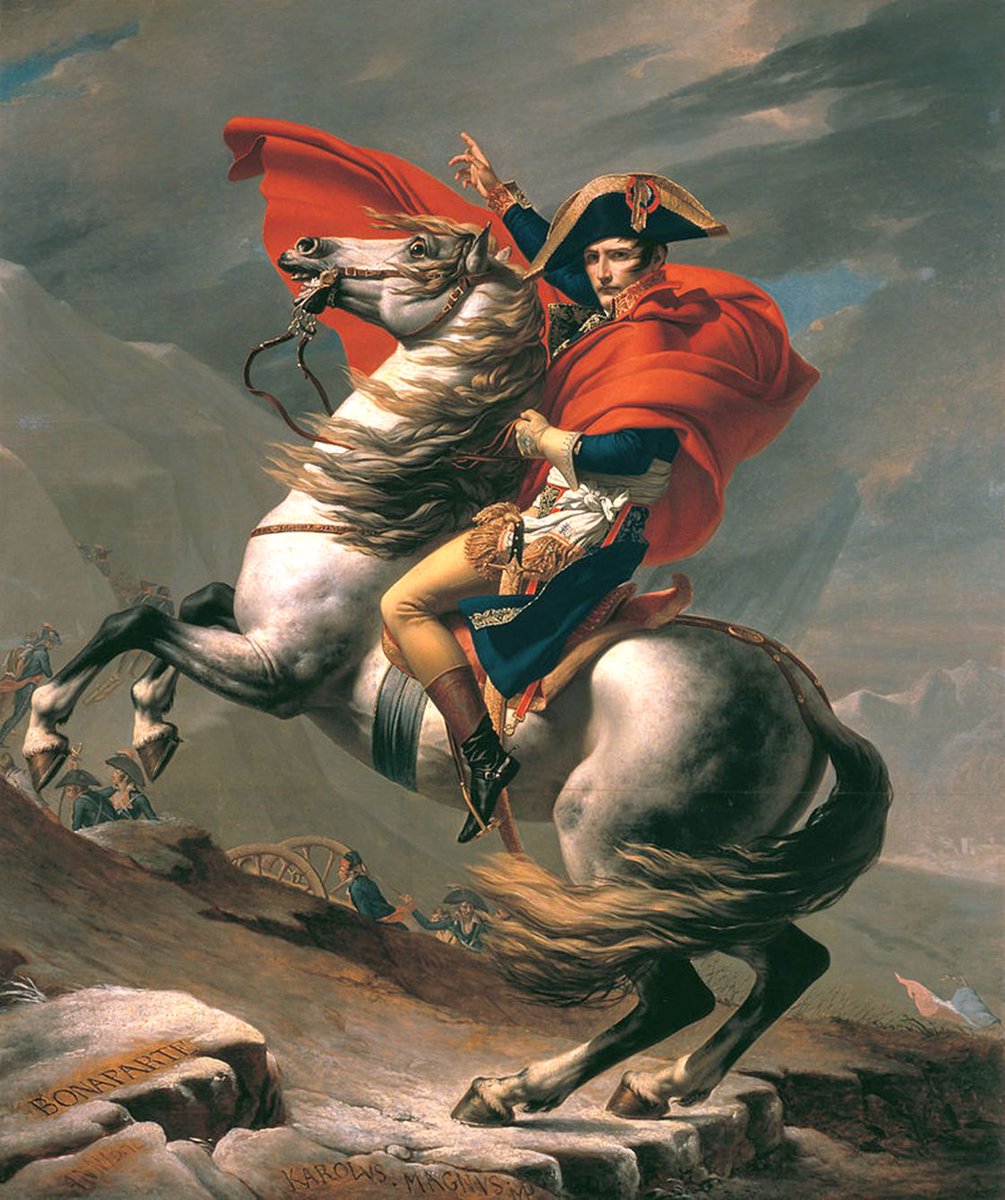
Napoleon’s abilities as a statesman and general were heavily influenced by his reading.
An immensely practical reader, he saw reading as a means to an end — a way to extract valuable information that he could use to further his ambitions.
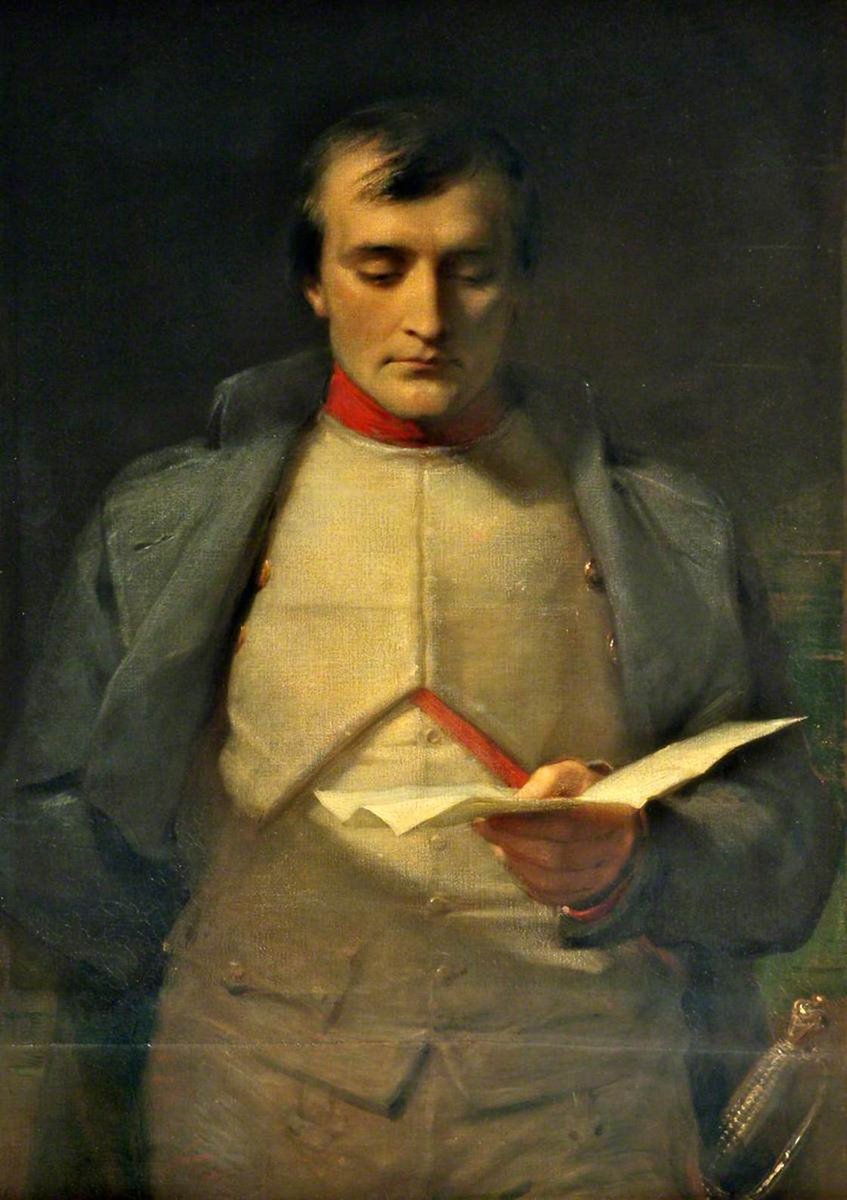
Sarkozy writes:
“His many literary adventures, at least as an adult, revolved around the practical. He wanted to quickly get to the nucleus of a book and then move on.”
For this reason, Napoleon never stopped reading. Even on military campaigns, he brought books along, commissioning “travel libraries” which were assembled by his personal librarian Antoine-Alexandre Barbier. These contained volumes on military tactics, history, and geography.

The emperor’s generals benefited from his propensity to read on campaign, too, as they were gifted their own book sets.
And much of Napoleon’s leadership style was imprinted on him by literature…
The way he interacted with his men was directly motivated by his books. To inspire his troops, he told them they were the “heirs of the great phalanxes of Alexander and the legions of Rome”.
He believed he and his men were continuations of the ancient conquerors he’d read about
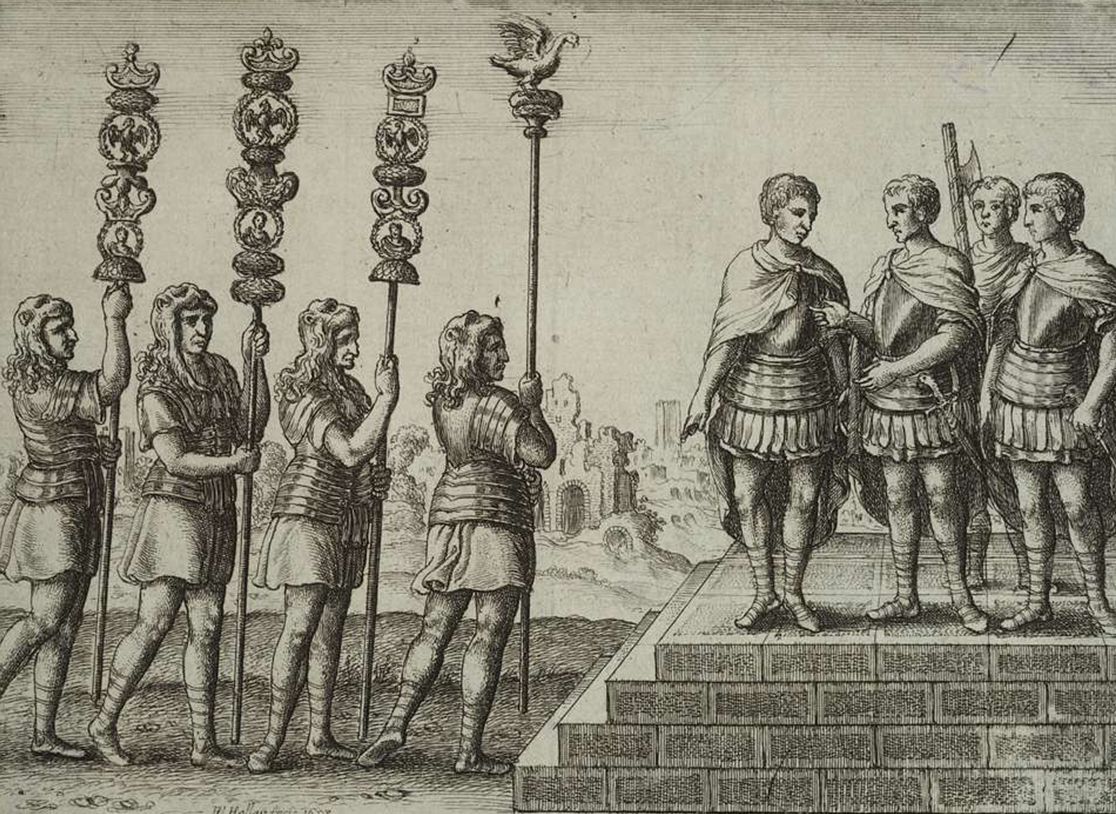
Tactical and political decisions were inspired by history as well, as Napoleon aimed to corroborate his actions with past successes :
“To inform his political decision he scoured the historical records to find precedence for his actions.”


For example, during his botched invasion of Russia, Napoleon brought along Voltaire’s biography of Charles XII of Sweden, who had invaded Russia at the beginning of the 18th century. Considering Napoleon's defeat, one wonders if he should have read more closely...
On a more mundane level, Napoleon incorporated his propensity for reading into important logistical considerations that all good generals must make. He apparently poured over thousands of reports by his quartermasters in what almost seemed like an obsession.
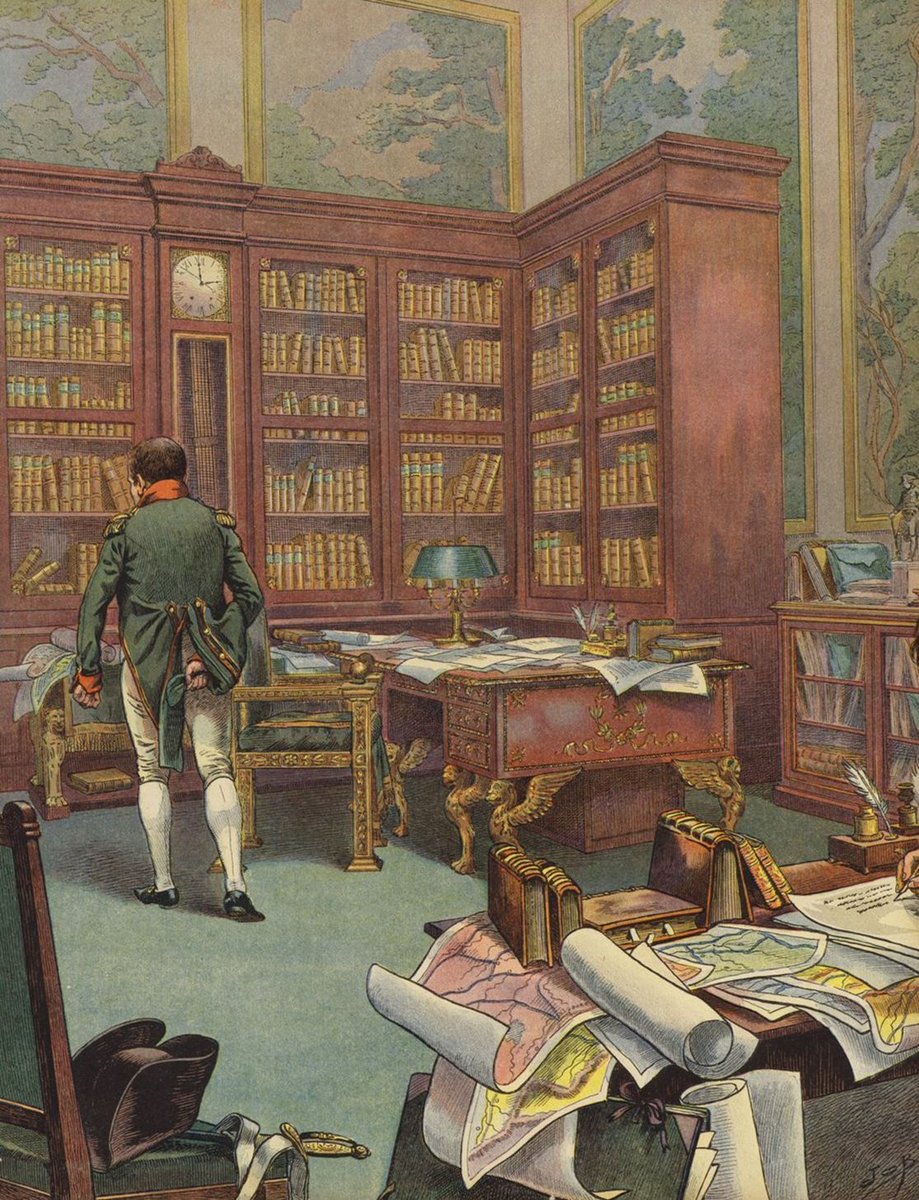
Napoleon himself admitted: “I read these reports with as much joy as a young girl reads a novel.”
Reports of injuries, absentees, ammunition supplies — even numbers of socks and coat buttons — greatly occupied the emperor’s time.
After Napoleon's defeat and exile to the island of St. Helena where he’d spend his final years, reading remained an integral part of his life. He understood that he’d reached his final chapter and therefore did what he’d always loved:
“All that remained were memories and books”
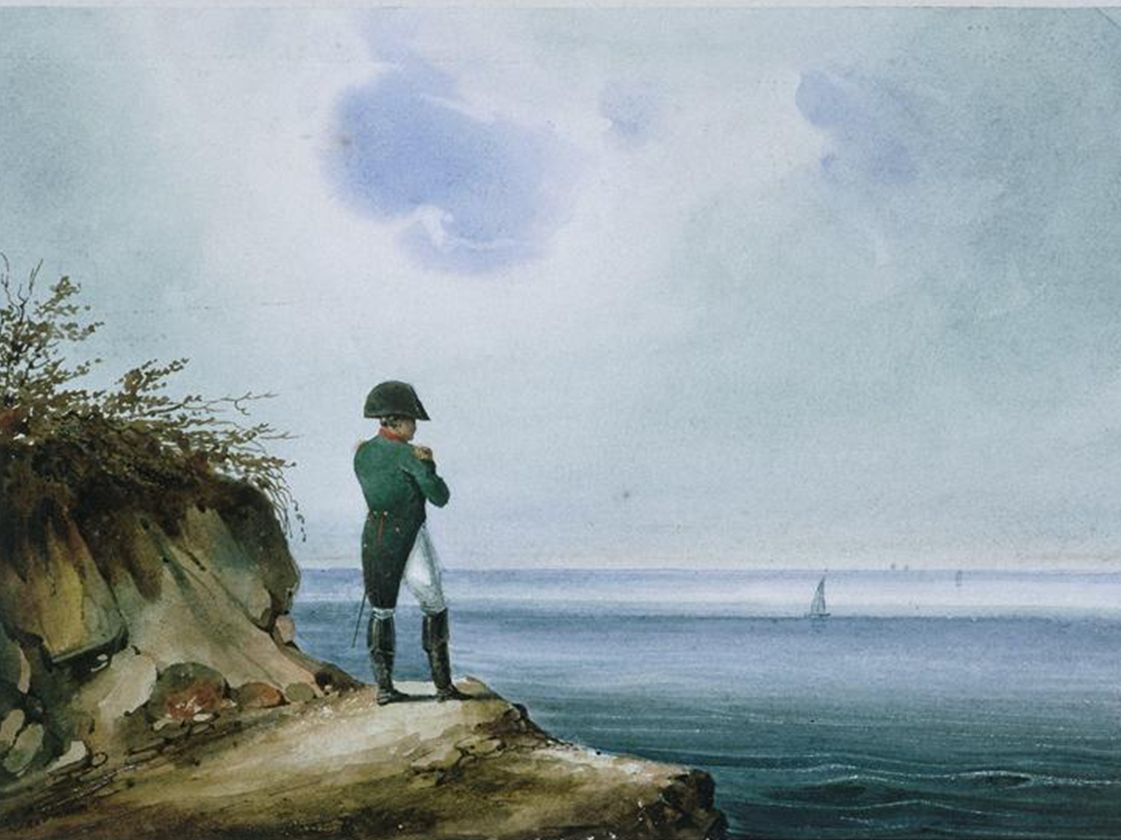
And it was here where Napoleon cemented his legacy through, quite fittingly, a book.
“The Memorial of Saint Helena”, written by Emmanuel de Las Cases, (a former chamberlain and Napoleon's unofficial secretary) detailed Napoleon's life and career.
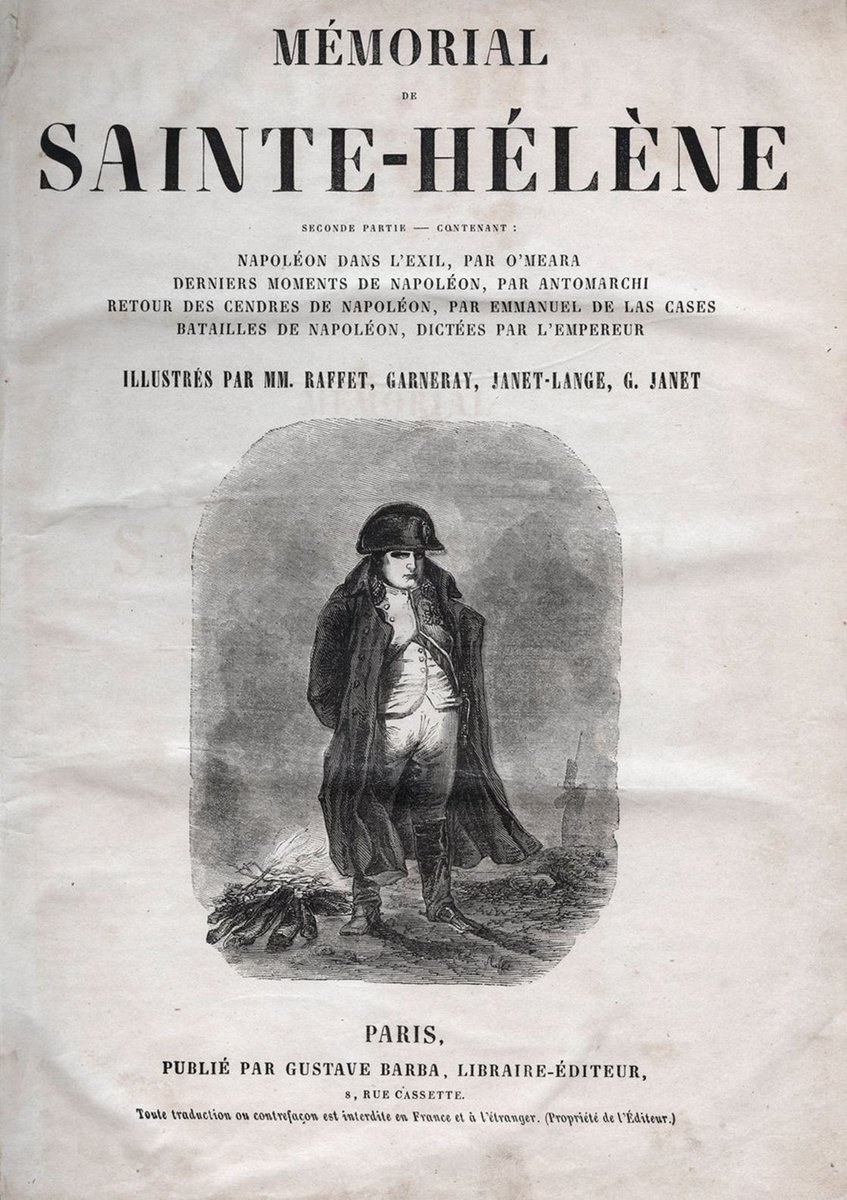
Written in a journal form based on Las Cases daily conversations with the emperor, it became an instant bestseller upon its publication in 1823, just two years after Napoleon's death. It was “possibly the most widely read political text of its time,” according to one historian.
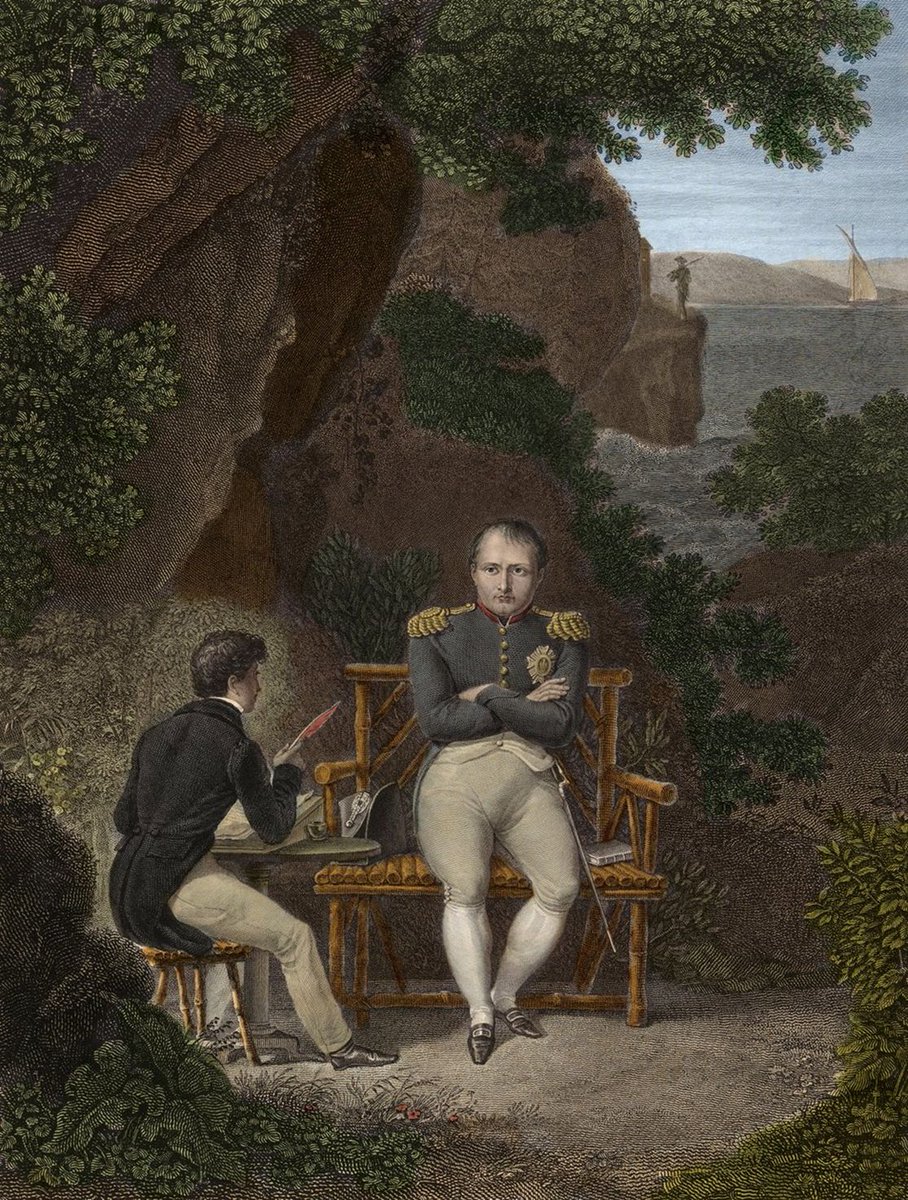
It’s from this work we get Napoleon’s most famous lines such as “I am the Messiah of the Revolution.” and “What a novel my life has been.”
With the “The Memorial of Saint Helena,” Napoleon’s life, which was so influenced by literature, became a book itself.
Napoleon’s life is a testament to the awesome power of literature; in particular, the effect that reading about great heroes can have on one’s future.
Perhaps if the young Napoleon had never stumbled across Plutarch’s “Lives,” history would have looked drastically different.

This thread was inspired by my friend Louis Sarkozy’s (@napsarkozy) recent work “Napoleon’s Library,” a fascinating look into the works that inspired the emperor and how they shaped his life.
I highly recommend giving him a follow and grabbing a copy of his book!
@napsarkozy If you enjoyed this thread and would like to go deeper into topics like this, join our Substack community — it’s where we put our most in-depth content👇
http://thinkingwest.substack.com






















